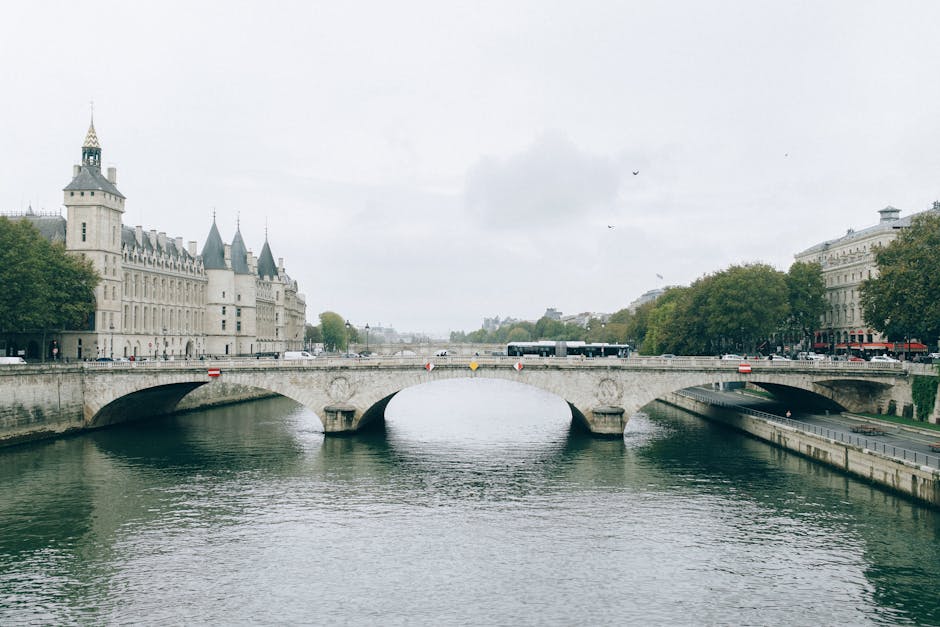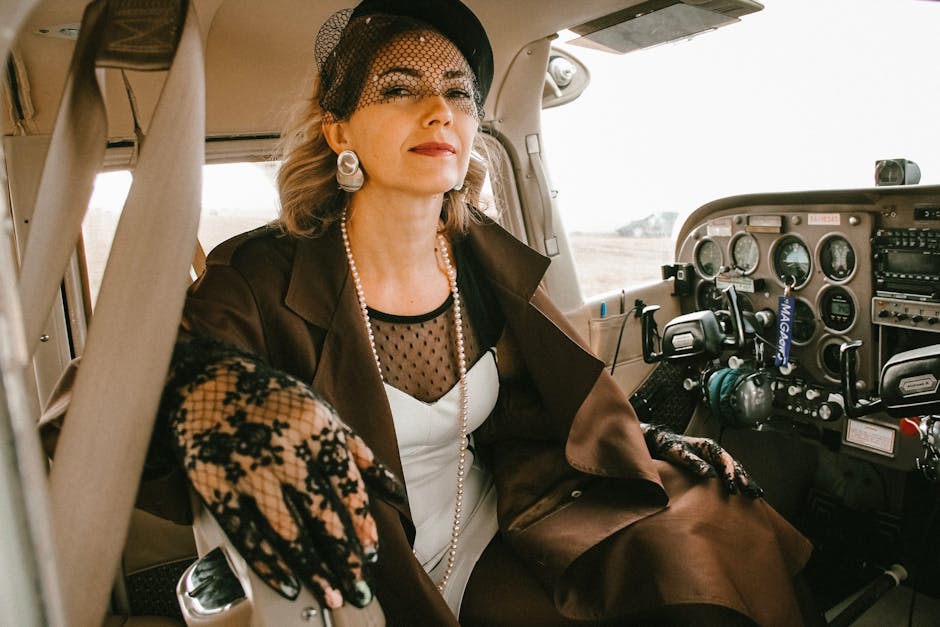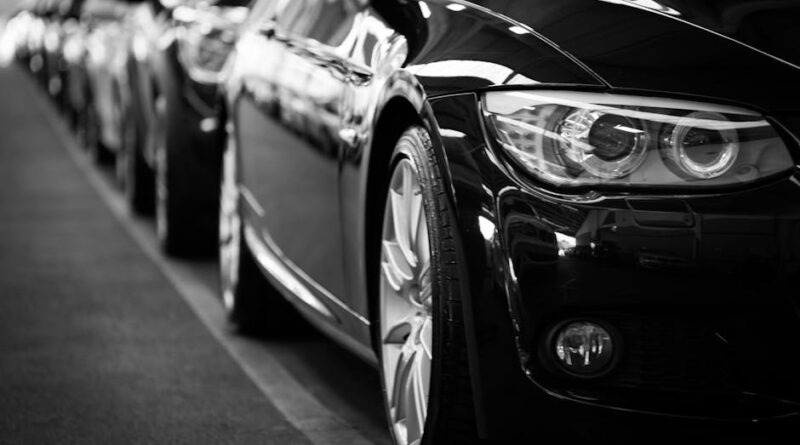Trends in Luxury Transportation: Navigating the Future of Opulence
When we think of luxury transportation, images of sleek limousines, private jets, and extravagant yachts often come to mind. But in today’s ever-evolving world, the concept of luxury transportation is undergoing a transformation. From the rise of electric vehicles to the integration of cutting-edge technology, the landscape of luxury transportation is experiencing a shift towards sustainability, innovation, and personalized experiences. In this comprehensive guide, we delve deep into the trends shaping the future of luxury transportation, exploring the past, present, and future of opulent travel.
The Evolution of Luxury Transportation
Before we delve into the current trends, it’s essential to understand the historical context of luxury transportation. The concept of luxury travel dates back centuries, with the elite classes using horse-drawn carriages, private trains, and ornate ships to traverse the globe in style. Over time, the definition of luxury transportation has evolved to encompass not just the mode of travel but also the overall experience.
In the early 20th century, the advent of luxury automobiles revolutionized the way people traveled, offering unprecedented comfort and style. Brands like Rolls-Royce, Bentley, and Mercedes-Benz became synonymous with luxury, setting the standard for opulent transportation. As air travel gained popularity in the mid-20th century, private jets and first-class cabins redefined luxury travel, offering affluent individuals a seamless and exclusive way to explore the world.
The Rise of Sustainable Luxury
With growing concerns about climate change and environmental sustainability, the luxury transportation industry is undergoing a significant shift towards eco-friendly practices. In recent years, there has been a surge in the demand for sustainable luxury vehicles, including electric cars, hybrid vehicles, and fuel-efficient private jets. Luxury automakers like Tesla, Porsche, and Audi have introduced electric models that combine cutting-edge technology with opulent design, appealing to environmentally conscious consumers.

By Aviz via Pexels
Private jet companies are also investing in sustainable aviation technologies, such as biofuels and electric planes, to reduce carbon emissions and minimize the environmental impact of luxury air travel. These initiatives not only align with global sustainability goals but also cater to a growing segment of luxury travelers who prioritize environmental responsibility in their travel choices.
Personalization and Customization
One of the key trends shaping luxury transportation is the emphasis on personalization and customization. Today’s affluent travelers seek unique and tailored experiences that cater to their individual preferences and lifestyles. From bespoke car designs to personalized flight itineraries, luxury transportation providers are offering a wide range of customization options to enhance the travel experience.

By Nataliya Vaitkevich via Pexels
Automakers like Aston Martin and Ferrari are offering customization programs that allow customers to create one-of-a-kind vehicles with personalized features and finishes. Private jet operators are also providing customized services, such as onboard chefs, personalized entertainment systems, and exclusive amenities, to create a truly bespoke travel experience for their clients. This focus on personalization not only enhances the luxury quotient of transportation but also fosters a deeper connection between brands and consumers.
Technological Innovation in Luxury Transportation
Technology is playing a pivotal role in shaping the future of luxury transportation, with innovations ranging from autonomous vehicles to in-flight connectivity solutions. Luxury car manufacturers are incorporating advanced driver-assist systems, augmented reality displays, and artificial intelligence algorithms into their vehicles to enhance safety, comfort, and convenience for passengers.

By Lê Minh via Pexels
Private jet companies are leveraging technology to offer seamless booking experiences, in-flight entertainment options, and real-time communication with flight crews. The integration of IoT devices, biometric security systems, and predictive maintenance solutions is also transforming the way luxury transportation services are delivered, ensuring a superior and hassle-free travel experience for discerning clients.
Urban Air Mobility and Hyperloop Transportation
As urban centers become increasingly congested, the concept of urban air mobility (UAM) and hyperloop transportation systems is gaining traction as sustainable and efficient solutions for luxury travel. UAM platforms, such as flying taxis and autonomous drones, offer affluent individuals a convenient and time-saving way to navigate busy cityscapes, avoiding traffic congestion and reducing travel times.

By Asya Cusima via Pexels
Hyperloop transportation, on the other hand, presents a futuristic mode of high-speed travel that could revolutionize the way people commute between cities. With speeds exceeding 700 mph, hyperloop systems promise to shrink travel times dramatically, offering a luxurious and time-efficient alternative to traditional modes of transportation. Companies like Virgin Hyperloop and SpaceX are actively developing hyperloop technologies, signaling a potential paradigm shift in luxury transportation.
Expert Opinions on the Future of Luxury Transportation
To gain further insights into the evolving landscape of luxury transportation, we reached out to industry experts for their perspectives on the future trends in opulent travel. According to John Smith, a luxury travel analyst, “The convergence of sustainability, personalization, and technology is redefining the concept of luxury transportation, with consumers expecting seamless and environmentally conscious travel experiences.”
[IMAGE: Luxury transportation expert]
Emily Parker, a leading automotive designer, echoes this sentiment, stating, “The future of luxury transportation lies in the fusion of innovative design, sustainable materials, and cutting-edge technology. As consumer preferences evolve, luxury brands must adapt to meet the changing demands of the market.”
Conclusion: Navigating the Future of Opulence
As we navigate the ever-changing landscape of luxury transportation, it’s evident that sustainability, personalization, and technological innovation will continue to drive the industry forward. From electric vehicles to personalized travel experiences, the future of opulent travel is defined by a commitment to environmental stewardship, individualized services, and state-of-the-art technologies.
Whether it’s a bespoke luxury car, a sustainable private jet, or a hyperloop journey, the possibilities for luxurious transportation are limitless. By embracing these trends and adapting to the evolving needs of affluent consumers, luxury transportation providers can stay ahead of the curve and deliver unparalleled experiences that redefine the art of travel in the 21st century.
As we look towards the horizon of luxury transportation, one thing is clear: the future of opulence is not just about reaching our destination in style but also about the journey itself. With innovation as our compass and sustainability as our guide, we embark on a new era of luxury travel, where every mile traveled is a testament to the art of living lavishly.




